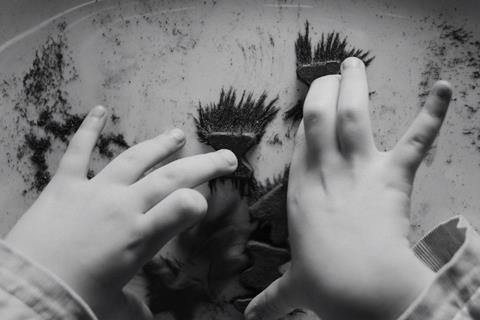Ukrainian filmmaker Roman Liubyi examines the tragedy of Malaysia Airlines Flight MH17 in 2014 - a crime that’s still playing out today

Dir: Roman Liubyi. Ukraine/Germany. 2023. 84mins
The downing of Malaysia Airlines Flight MH17 is still with us: in fact, we’re watching its consequences play out on our news feeds every day. That’s the subtext of Ukrainian director Roman Liubyi’s provocative new documentary about the shooting down of a civilian aircraft by Russian-backed separatist forces in eastern Ukraine in July 2014. It’s made explicit in a caption early on in this intriguing, shape-shifting film, which reminds us that the war in Ukraine had already escalated – back then, “298 citizens from different countries became its victims”.
A film that keeps trying out new tricks on its audience
Ukrainian film collective Babylon 13, which produced this and the director’s previous documentary feature War Note, was created in the wake of the crackdown that followed Kiev’s Euromaidan protests of November 2013. Iron Butterflies, named after the shape of the shrapnel fragments that penetrated the aircraft, is far more ambitious. Not content to simply tell the story of the war crime and subsequent Dutch-led criminal investigation, the director interleaves a handful of staged scenes, most of which culminate in jagged, willfully surreal contemporary dance sequences (one is set in an aircraft hangar where the wreckage and salvaged belongings are laid out).
These seem designed mostly to establish Iron Butterfly’s artistic credentials in a film whose tone veers between angry and sardonic. So outrageous are Russian attempts to derail the investigation, so absurd the manipulation of the story by a Putin-friendly media that is not above interviewing a psychic with a theory about the case, that maybe dance and mime are the only sane reaction. Still, the sequences can’t help but feel pretentious, and will prove a litmus test for distributors and audiences – some of whom may well admire the director’s risk-taking chutzpah.
Yet Iron Butterflies does manage to rise above these distractions and provide a mostly absorbing illustration of a line by Soviet writer and dissident Aleksandr Solzhenitsyn that is read out by a Dutch prosecutor at the start of the trial in absentia of four men accused of shooting down the Boeing jet: “Violence cannot conceal itself behind anything except lies, and lies have nothing to maintain them save violence”. We see selfies posted on social media by pro-Russian separatist soldiers, grinning by the smoking wreckage. We watch a Russian TV news channel make a cynical U-turn on its reporting of the event as the truth begins to emerge.
Some of the material here has been amply shared: for example, audio intercepts that make it clear that the Russian cover-up began almost before the world knew anything about the incident. But other sequences feel fresh, especially two that fall in the film’s stronger second part – one focusing on the often-forgotten fact that six of the victims were headed to an international AIDS conference in Melbourne, the other centering on Dutch musican and former soldier Robby Oehlers, who lost his cousin and her boyfriend in the attack.
In news footage filmed outside the courtroom in The Hague, where the criminal trial was held, Oehlers tells reporters how curious it is that, despite having ascertained that Russia was responsible for the biggest attack on Dutch civilians since World War II, the Netherlands continues to buy Russian gas. We can’t help but reflect ironically on how even a full-scale Russian invasion hasn’t fully solved that particular moral dilemma. Cut to Oehlers’ home studio, where he is seen playing a mournful blues number on a one-stringed guitar. It’s one of the quieter, more moving moments in a film that keeps trying out new tricks on its audience – animated children’s drawings, old Russian BUK missile-launcher promotional videos, shots of a kid’s hands using a set of ‘iron butterflies’ as building blocks.
The most memorable sequence is perhaps the simplest: a long shot of a huge flock of starlings making shapes above the fields of the crash site. We’re reminded of those swirls and flows right at the end, when we watch a sped-up flight tracker map of Europe – its airspace as busy as ever, except for a gaping Ukraine-sized hole.
Production company: Babylon 13
Worldwide distribution: Rise and Shine, info@riseandshine-berlin.de
Producers: Andrii Kotliar, Volodymyr Tykhyy
Screenplay: Roman Liubyi, Mila Zhluktenko
Production design: Volodymyr Liubyi
Editing: Roman Liubyi, Mila Zhluktenko
Cinematography: Andrii Kotliar
Music: Anton Balbakov, Oleksandra Morozova
























